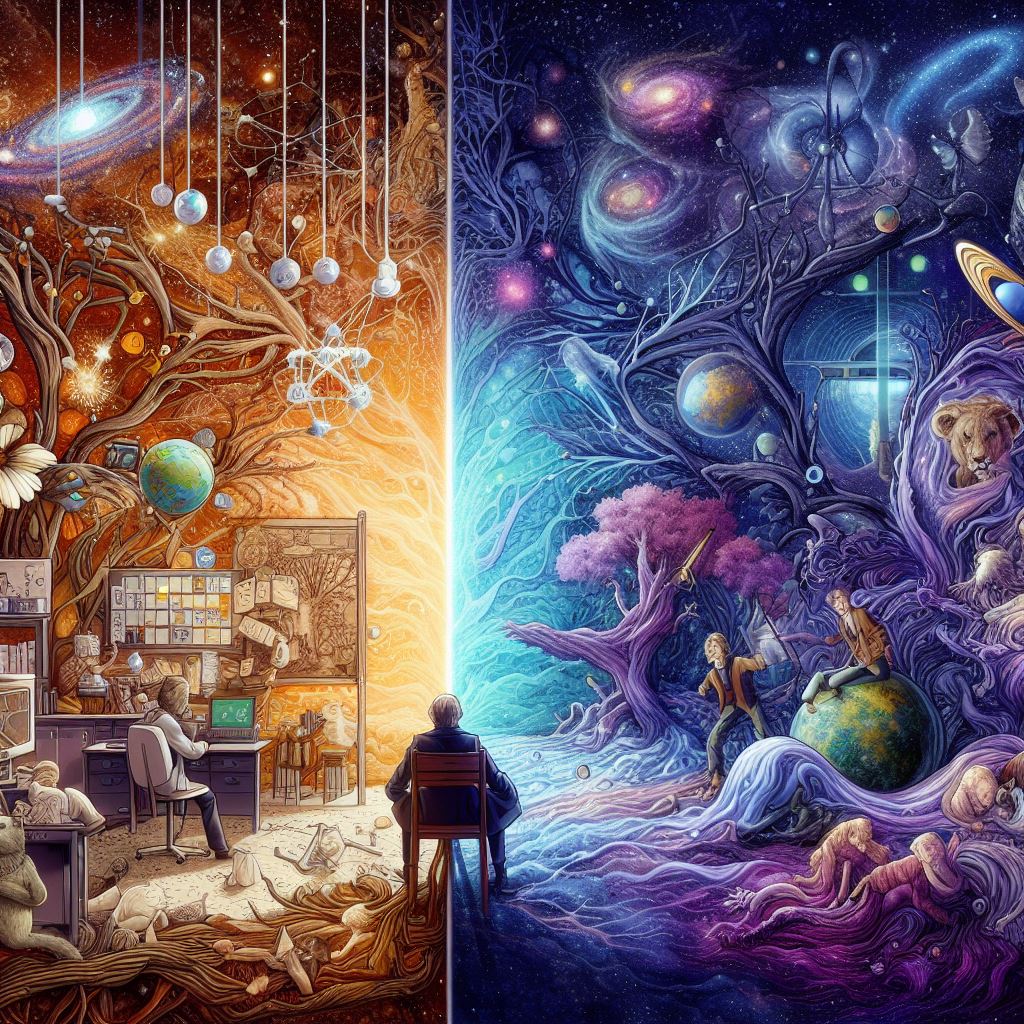
Exploring Alternative Universes: Science & Myth
In our quest for understanding the universe, both science and culture have frequently pondered the existence of realities beyond our own. This comprehensive exploration seeks to merge the empirical with the imaginative, diving deep into the realms of alternative universes.
Definition of an Alternative Universe
An alternative universe, often referred to with the short-tailed keywords such as Multiverse or Alternate reality, encompasses potential existences that parallel our own. These realms may function under different physical laws or exhibit alternate histories.
Synonymously, these realities can be termed as Multidimensional, Interdimensional, or Otherworldly realms. They stretch our understanding of reality and challenge the limitations of our perceptions.
Historical Perspectives on the Concept
The concept of parallel worlds isn't new. Philosophers, theologians, and even scientists have long grappled with the idea that our universe might be one among many.
- Ancient cultures depicted alternate realms in their myths and religious texts.
- Renaissance thinkers like Giordano Bruno postulated the existence of infinite worlds.
- Modern literature, from H.G. Wells to Philip K. Dick, has explored these alternative spaces in-depth.
Current Theories and Research Regarding Alternative Universes
Theoretical Physics Behind Alternative Universes
One of the most groundbreaking discussions in the realm of Quantum Theory and String Theory is the proposal of alternate universes. Some theories suggest:
- Every decision spawns a separate universe where the opposite choice was made.
- Universes might float like bubbles in a vast multiverse.
- Different universes could have entirely different physical laws.
For instance, Brian Greene's "The Hidden Reality: Parallel Universes and the Deep Laws of the Cosmos" elaborates on the possibility and science behind these alternate realities.
Evidence Supporting the Existence of Parallel Universes
While still in the realm of theoretical physics, certain evidence hints at the possibility:
- Cosmic inflation and patterns in the Cosmic Microwave Background radiation.
- Certain interpretations of Quantum Mechanics suggest particles exist in a state of probability until observed, potentially giving birth to multiple realities.
- The many-worlds interpretation posits every quantum event as a branching point for a new universe.
Multiverse Theory in Modern Science
The Multiverse Theory suggests an infinite number of universes, including those where you might have made different choices or where the laws of physics are entirely different. Michio Kaku's "Parallel Worlds: A Journey Through Creation, Higher Dimensions, and the Future of the Cosmos" is an invaluable resource in understanding this intricate concept.
Cultural Representations of Alternative Universes
Parallel universes aren't just the focus of scientists. Pop culture, literature, and art are teeming with references to these realms:
- Literature: Think of C.S. Lewis’s Narnia or J.K. Rowling’s Mirror of Erised.
- Movies and TV: From Star Trek’s Mirror Universe to the Upside Down in Stranger Things.
- Art: Numerous paintings and sculptures depict dreamlike or otherworldly realms, reflecting alternate realities.
Scientific Evidence or Lack Thereof
It's crucial to understand the speculative nature of these universes:
- No direct evidence of parallel universes has been observed.
- Many of the theories are not yet testable.
- Some physicists argue that if these universes are unobservable, they're outside the realm of empirical science.
However, as research tools and techniques evolve, what is currently untestable might become a reality in the future.
Implications of the Existence of Alternate Universes
If parallel universes exist, it reshapes our understanding of reality:
- Philosophical Implications: Questions about destiny, free will, and the nature of existence.
- Theological Implications: How does this fit with religious beliefs?
- Scientific Implications: Rethinking laws of physics and our understanding of the cosmos.
In Conclusion
To quote physicist Stephen Hawking, "It's a crazy idea, but who knows?" The existence of alternative universes blends the boundaries between science, philosophy, and culture. While we might not have definitive answers, the journey through understanding and imagination offers a universe of possibilities in itself.
For further exploration, one might refer to scientific articles from "Physical Review Letters", "Nature Physics", and resources from organizations like CERN.
This article aims to serve both the curious mind and the academic scholar, bridging gaps and fostering a love for the boundless mysteries of our, and perhaps other, universes.
Science Universe




